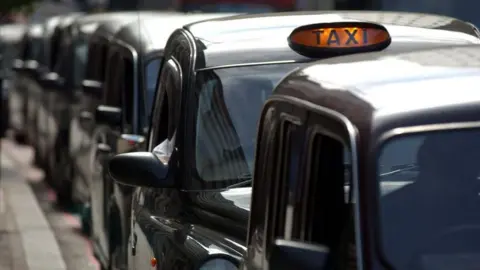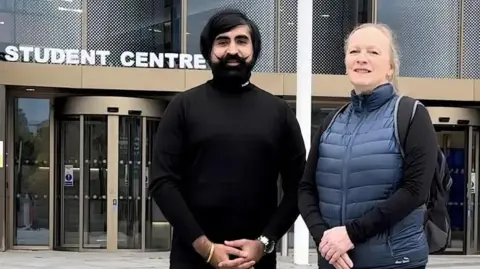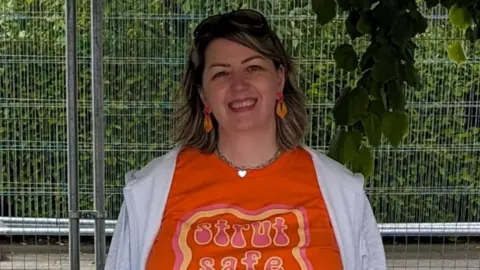'Wake-up call' leads to major taxi safety probe
 PA Media
PA MediaWhen taxi company boss Shaz Malik began to ask passengers about how safe they felt in cabs, the answers were “a wake-up call”.
In the wake of a number of incidents including the case of Nazim Asmal, who had posed as a taxi driver to pick up and rape three women in Blackburn, up to 300 people said they had been been harassed or assaulted by drivers, Mr Malik said.
Deciding the issue “could not ignored forever”, he decided to team up with his local university.
The outcome would be the launch of what is believed to be the first ever large-scale investigation into taxi customer safety in the UK.
 UGC
UGCJoanne Westwood, a professor of social work education at the University of Central Lancaster (UCLAN) said there was little evidence available.
But she said what evidence there was suggested that taxi customers were in a particularly vulnerable position.
"If somebody was was harassing you or making you feel uncomfortable in the street, you would just get up and you just walk away,” she said. “You can't do that in a in a taxi, in in a moving vehicle."
Prof Westwood, who is leading the study with her Dr Helen Richardson Foster, said she believes the study will bring new evidence to light.
“What I expect is that there will be incidences and experiences that people talk about that they might not have talked about before."
Mr Malik, who is also the director of the Chorley Taxi Association, said he hoped the research would help clean up his industry.
He said while the majority of drivers were professional, the case of 35-year-old Asmal - who was jailed for 17 years for four sex attacks on three women - had tarnished the industry.
Mr Malik said it was important customers who had any evidence of problems with genuine taxi drivers should report those incidents to the police and local council licensing teams.
 Handout
HandoutCaragh Campbell, a call handler for night-time safety helpline Strutsafe, said she heard from women who had unnerving experiences in taxis.
Ms Campbell said: “We have had one caller who was like ‘I just got a really weird vibe in the taxi and then I actually got to my house and kind of peeped through the peephole and the taxi was still sitting there a few minutes later’.
"I think people get that gut feeling and people should always, always follow it. They’re never wasting their time if they call us."
She said partnerships between taxi companies and organisations like Strutsafe to display the Strutsafe number inside vehicles could help passengers feel safer.
Ms Campbell said: "I think most taxi drivers would be up for that because they don't have any sinister motives.
“They just want the passenger to get home safely."
The University of Central Lancashire's Safety in Taxis survey closes midnight on Sunday 1 December.
Listen to the best of BBC Radio Lancashire on Sounds and follow BBC Lancashire on Facebook, X and Instagram. You can also send story ideas to [email protected] and via Whatsapp to 0808 100 2230.
